|

On eBay Now...
RARE "Historical Figures" Album Page Signed By 4 For Sale
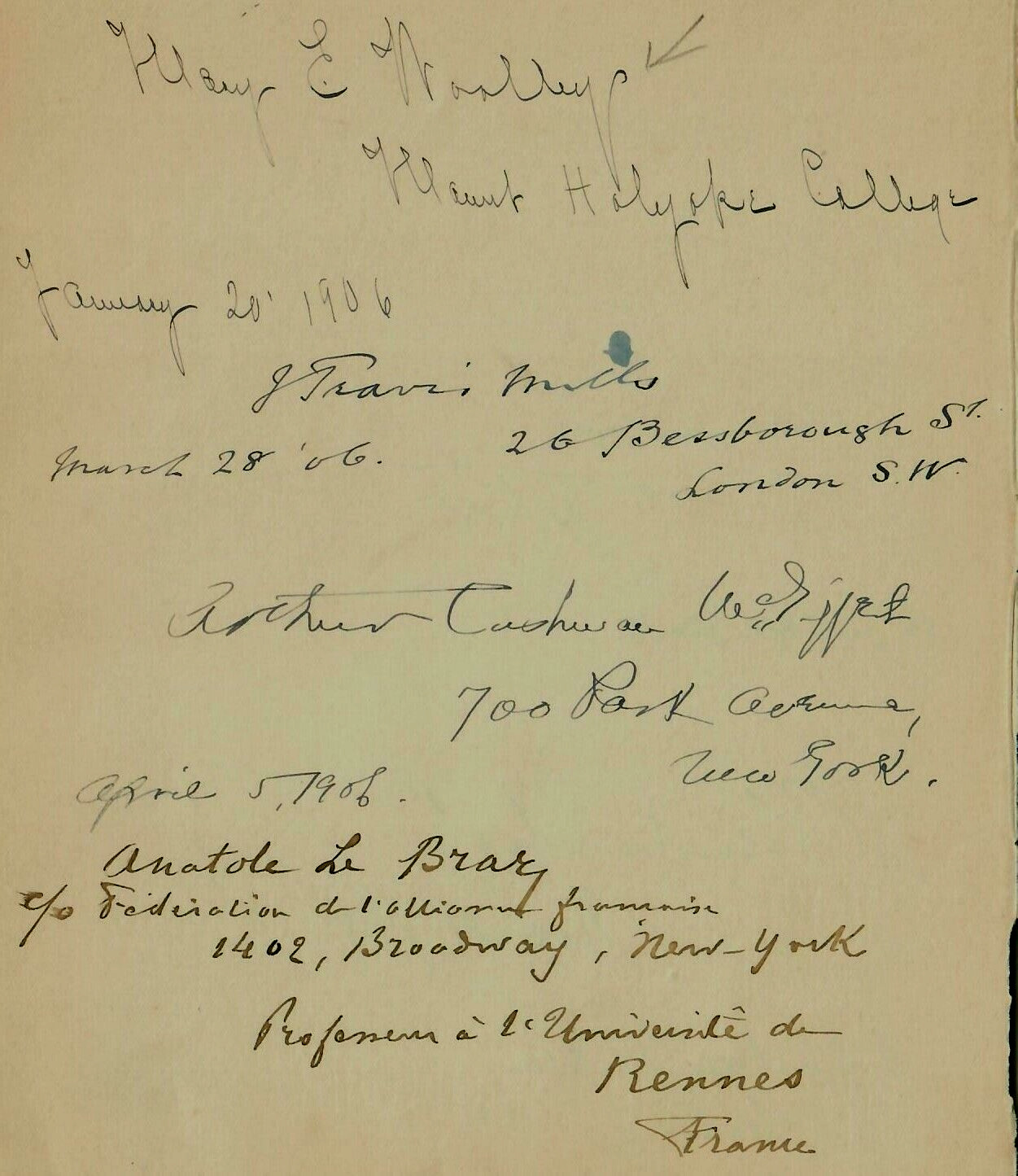
When you click on links to various merchants on this site and make a purchase, this can result in this site earning a commission. Affiliate programs and affiliations include, but are not limited to, the eBay Partner Network.

RARE "Historical Figures" Album Page Signed By 4:
$399.99
RARE! "Historical Figures" Album Page Signed By 4. Signers are; Mary E Wooley, Arthur Cushman McGiffert, Anatole Le Braz and Pearl Mary Teresa Craigie (Pen Name John Oliver Hobbes).
ES-7127E Mary Emma Woolley (July 13, 1863 – September 5, 1947) was an American educator, peace activist and women's suffrage supporter. She was the first female student to attend Brown University and served as the 11th President of Mount Holyoke College from 1900 to 1937. Woolley was the daughter of Joseph Judah (J.J.) Woolley and his second wife, Mary Augusta Ferris. She was given the nickname May, and enjoyed a comfortable, nurturing childhood in New England. She was first raised in Meriden, Connecticut and, starting in 1871, Pawtucket, Rhode Island. Her father was a Congregational minister and his efforts to incorporate social work into religion, heavily influenced his daughter. Woolley attended Providence High School and a number of smaller schools run by women before finishing her secondary schooling, in 1884, at the Wheaton Seminary in Norton, Massachusetts. Woolley returned to teach there from 1885 to 1891. After traveling through Europe for two months during the summer of 1890, she intended to attend Oxford University, but her father agreed with Elisha Benjamin Andrews, the president of Brown University, that Woolley should become one of the first female students at Brown. She began attending Brown in the fall of 1890, while still teaching at Wheaton. In 1894, she received her B.A. and in 1895, her M.A. for her thesis titled, The Early History of the Colonial Post Office. Immediately upon arrival at Mount Holyoke, Woolley outlined her views on female education. While in the past, the college had placed an emphasis on women's education in service to society, Woolley stressed that in the future, a women's education would not need to be justified by anything but intellectual grounds. Woolley believed education, roughly, was a preparation for life, and that an educated woman was able to achieve anything. She argued that if women had not succeeded in the past, it was because their education, or lack thereof, had held them back. As the president of a women's college, one of her many responsibilities was to publicly support female education. During her 36-year presidency, she worked to end the prejudice of the era that contended that women had a natural learning disability and that intellectual work negatively affected their health. Woolley began to have influence within the academic community, and she led cooperative efforts with other women's colleges to raise funds, academic standards and public consciousness for women's education. During Woolley's presidency, she built a strong faculty, attracting scholars from the most prestigious graduate schools by offering increased salaries, fellowships, and sabbaticals. Woolley also attempted to improve the quality of students admitted to Mount Holyoke, after raising admission standards, introducing honors programs and general examinations for seniors. The college endowment also grew from $500,000 to nearly $5 million and the campus added sixteen new building during her 36-year presidency. One of her most significant changes came when she abolished the domestic work system, instituted by the college's founder, Mary Lyon. When Lyon founded the college in 1837, students were required to cook and clean for economic reasons, and other women's colleges followed the example. By 1901, Mount Holyoke was the only women's college with the system still in place and Woolley thought the system was old fashioned and an obstacle in her goal of making Mount Holyoke intellectually equal to male colleges. She also created a position for Jeanette Marks, who taught English and Theater at Mount Holyoke until her retirement in 1941. Though the women never publicly acknowledged a lesbian relationship, there were some undercurrents of resentment at the college for Woolley's alleged "favoritism" towards Marks.
Arthur Cushman McGiffert (March 4, 1861 – 1933), American theologian, was born in Sauquoit, New York, the son of He graduated at Western Reserve College in 1882 and at Union Theological Seminary in 1885, studied in Germany (especially under Harnack) in 1885–1887, and in Italy and France in 1888, and in that year received the degree of doctor of philosophy at Marburg. He was instructor (1888-1890) and professor (1890-1893) of church history at Lane Theological Seminary, and in 1893 became Washburn professor of church history in Union theological seminary, succeeding Philip Schaff. He became the 8th president of Union Seminary in 1917. His published work, except occasional critical studies in philosophy, dealt with church history and the history of dogma. His best known publication is a History of Christianity in the Apostolic Age (1897). This book, which sustains critical historical eminence to this day, by its independent criticism and departures from traditionalism, aroused the opposition of the General Assembly of the Presbyterian Church; though the charges brought against McGiffert were dismissed by the Presbytery of New York, to which they had been referred, a trial for heresy seemed inevitable, and McGiffert, in 1900, retired from the Presbyterian ministry and retained his credentialed status by eager recognition from a Congregational Church. Likewise he retained his distinguished position at Union Theological Seminary.[ A History of Christian Thought constituted a two volume work (1932, 1933) which established an American standard in theological studies and is still cited regularly by scholars.[ Among his other publications are: A Dialogue between a Christian and a Jew (1888); a translation (with introduction and notes) part of Philip Schaff's Nicene and Post-Nicene Fathers series); and The Apostle's Creed (1902), in which he attempted to prove that the old Roman creed was formulated as a protest against the dualism of Marcion and his denial of the reality of Jesus's life on earth.
Anatole le Braz, the "Bard of Brittany" (2 April 1859 – 20 March 1926), was a Breton poet, folklore collector and translator. He was highly regarded amongst both European and American scholars, and known for his warmth and charm. Le Braz was born and raised amongst woodcutters and charcoal burners, speaking the Breton language; his parents did not speak French. He spent his holidays in Trégor, which inspired his later work. He began school aged swiftly to a degree at the Sorbonne, where he studied for seven years. He then returned to Brittany, where for 14 years he taught at the Lycée at Quimper and gradually translated old Breton songs into modern French, continuing the folklore work of François-Marie Luzel. He often entertained local peasants and fishermen in the old manor house where he lived, recording their songs and tales. His book, Chansons de la Bretagne ("Songs of Brittany"), was awarded a prize by the .Académie française In 1898, he became president of the Union régionaliste bretonne formed in Morlaix following the Breton festivals. In 1899 he joined the Association des bleus de Bretagne. He was made lecturer and then professor in the Faculty of Arts at Rennes University between 1901 and 1924. Le Braz was sent on foreign cultural missions by the French Government twenty times. He made several visits to the US, Canada and Switzerland, lecturing at Harvard University in 1906, and at Columbia University in 1915. During his 1915 visit he married Henrietta S. Porter of Annapolis, who died in 1919. In 1921 he married Mabel Davison of Manhattan, sister of the famed banker Henry P. Davison.[1] American novelist John Nichols is his great-grandson. He is the maternal great-grandfather of the musician Tina Weymouth and the architect Yann Weymouth along with their six siblings. Le Braz died at Menton on the French Riviera. Mourners included the French prime minister, Aristide Briand.
Pearl Mary Teresa Richards (November 3, 1867 – August 13, 1906) was an wrote under the pen-name of John Oliver Hobbes. Though her work fell out of print in the twentieth-century, her first book Some Emotions and a Moral was a sensation in its day, selling eighty-thousand copies in only a few weeks. Pearl Mary Teresa Richards, born in Boston, Massachusetts, was the eldest daughter of the businessman John Morgan Richards and his wife Laura Hortense Arnold. Her father had Calvinist roots and her grandfather was a Presbyterian minister. The family moved to London soon after her birth, and she was educated in London and Paris. When she was nineteen, she married Reginald Walpole Craigie, by whom she had one son, John Churchill Craigie. The unhappy marriage was dissolved on her petition in July 1895. She was brought up as a Nonconformist, but in 1892 she was received into the Roman Catholic Church, where she remained, until her death, a devout and serious member. Her successful career as a novelist and playwright also made her a popular socialite with associates as diverse as George Tyrrell, Aubrey Beardsley,[1] and George Moore, who had been her lover.

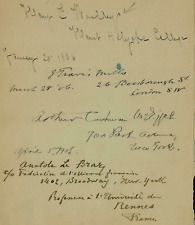
RARE "Historical Figures" Album Page Signed By John Oliver Hobbs (+3) $279.99
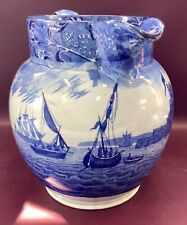
Rare Historical Blue Staffordshire “Shipping Series” 8.5” Pitcher Pearlware $400.00
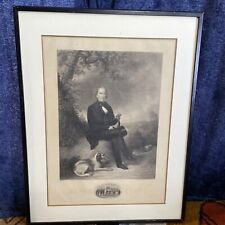
Rare Historical 1843 Henry Clay Engraving By J.W. Dodge, First Printing, Framed. $400.00
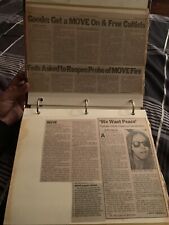
RARE Historical Newspaper Clippings - THE 1985 Philadelphia Bombing MOVE OSAGE $1000.00

Alcoholics Anonymous Very Rare Historical “Kistler’s Donuts” $500.00
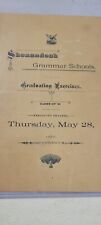
Rare Historical class of 1891 Shenandoah PA grammar school advertisement program $39.99
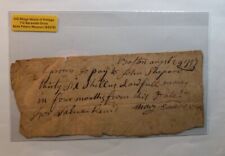
RARE DOCUMENT 1757 Promissory Note August 24, 1757 - Early Stocks & Bonds $205.00
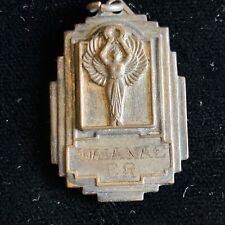
SUPER RARE Historical Rare Hawaii 1954 WAIANAE Canoe Race Medal $475.00
|